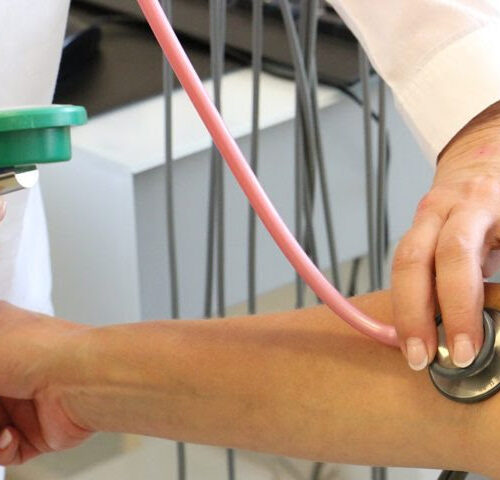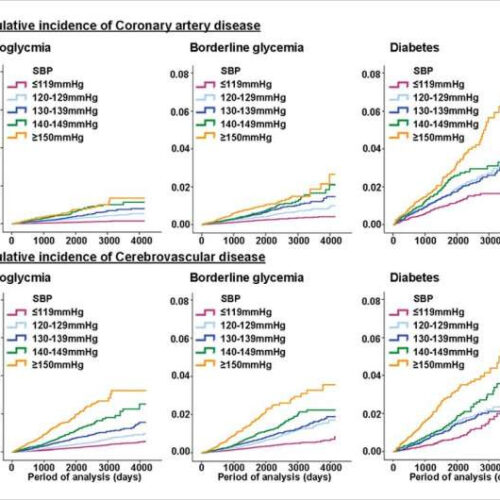Provides insight on what blood pressure targets in patients with hypertension according to glucose status should be. Image credit: Pixabay (Free Pixabay license) An estimated 1.13 billion people worldwide have hypertension or high blood pressure, and two-thirds of these individuals are living in low- and middle-income countries. Blood pressure is the force manifested by circulating...
Tag: <span>systolic blood pressure</span>
Systolic blood pressure above 120 mmHg increases rate of cardiovascular disease
by Niigata University Rates of CAD and CVD. Credit: Niigata University An estimated 1.13 billion people worldwide have hypertension or high blood pressure, and two-thirds of these individuals are living in low- and middle-income countries. Blood pressure is the force manifested by circulating blood against the walls of the body’s arteries, the major blood vessels...
Teen obesity, diabetes or high blood pressure may lead to prematurely aged arteries
by American Heart Association Teenagers who have obesity, type 2 diabetes or high blood pressure may be more likely to have signs of premature blood vessel aging compared to teens without those health conditions, according to new research published today in the Journal of the American Heart Association, an open access journal of the American...
Fasting diets reduce important risk factor for cardiovascular disease
Intermittent energy restriction diets such as the 5:2 diet clears fat from the blood quicker after eating meals compared with daily calorie restriction diets, reducing an important risk factor for cardiovascular disease, a new study in the British Journal of Nutrition reports. In the first study of its kind, researchers from the University of Surrey examined...
Intensive blood pressure lowering benefits patients with chronic kidney disease
Highlights In individuals with chronic kidney disease, targeting a systolic blood pressure to <120 mm Hg resulted in lower risks of cardiovascular events and premature death, compared with standard targeting to <140 mm Hg. There was a slightly faster decline in kidney function in the intensive group, but no increase in rates of kidney failure...



